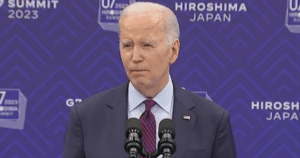Trump Plans Aggressive Death Penalty Enforcement Post-Inauguration
President-elect Donald Trump has pledged to direct the Justice Department to enforce the death penalty more vigorously once he assumes office, according to CNN.com.
This decision comes as a stark contrast to President Joe Biden's recent commutation of 37 death sentences.
Following President Joe Biden’s move on Monday to commute the death sentences of 37 federal inmates to life imprisonment, only three individuals remain on federal death row. These include high-profile cases like Robert Bowers, Dylann Roof, and Dzhokhar Tsarnaev, all convicted for acts of mass violence or terrorism.
Trump Criticizes Biden's Clemency Decisions
Expressing his disagreement with Biden's actions, Trump took to Truth Social, commenting that the commutations "make no sense." He views these changes as a weakening of the nation’s stance on crime. Trump’s future policies aim to reinforce law and order, which he believes were compromised under Biden's administration.
Trump's declaration aligns with his long-standing support for the death penalty, especially against those he considers a direct threat to public safety. His campaign promises included widening the scope of the death penalty to cover violent criminals and traffickers.
Advocating Harsher Penalties for Severe Crimes
During his 2024 campaign, Trump specifically targeted drug dealers and child traffickers, proposing the death penalty for these offenses. He also mentioned extending capital punishment to migrants who commit lethal offenses against U.S. citizens or law enforcement personnel.
The president-elect has been consistent in his hardline approach, often framing it as a necessary measure to protect American families from "violent rapists, murderers, and monsters," as he stated in his announcement.
Reactions from Families and Public
Responses to Biden’s commutations have been mixed, reflecting a divide in public opinion. Some families of victims have expressed relief at the avoidance of the death penalty, while others, like the family of slain officer Bryan Hurst, have voiced their disappointment, feeling justice has been denied.
Marissa Gibson, whose relative was a victim, remarked on the complex nature of such decisions. "Lawrence made a decision to choose violence... All I can hope is that his nearly 20 years in prison has made him a changed man," she stated, highlighting the personal transformations that might occur over decades in prison.
Historical Context of Federal Executions
Prior to Trump's presidency, federal executions were exceedingly rare, with only three happening since 1988. However, during Trump's first term in office, the number of federal executions spiked to 10 in the year 2020 alone, the highest in over a century.
This increase in executions under Trump’s previous administration reflects his firm stance on capital punishment as a deterrent to crime. It stands in contrast to the more than 2,000 inmates currently on death row in state prisons, over whom the federal government, including Biden, holds no clemency authority.
Looking Towards Trump’s Second Term
As Trump prepares for his inauguration in January, his plans to reinstate and expand the death penalty highlight a fundamental shift in federal criminal justice policy compared to the outgoing Biden administration. His focus is on making America "a Nation of Law and Order again," echoing his longstanding campaign rhetoric aimed at reinforcing safety and security.
While Biden's clemency actions are irreversible, Trump's administration will likely pursue the death penalty in new cases, continuing to advocate for it as a central element of his law enforcement strategy.



